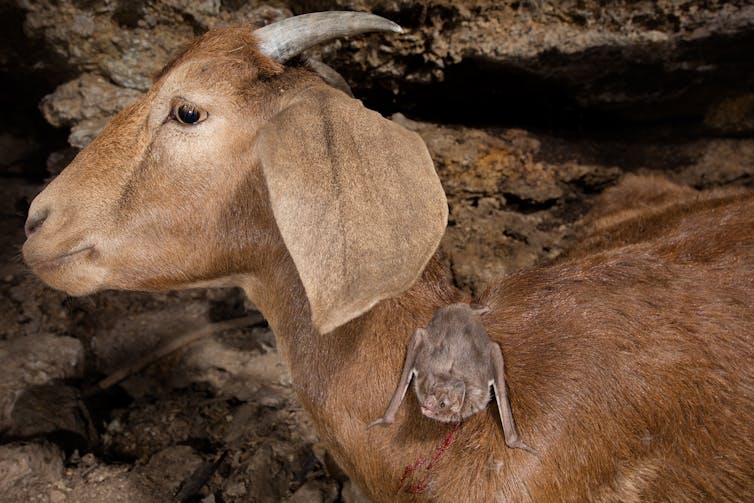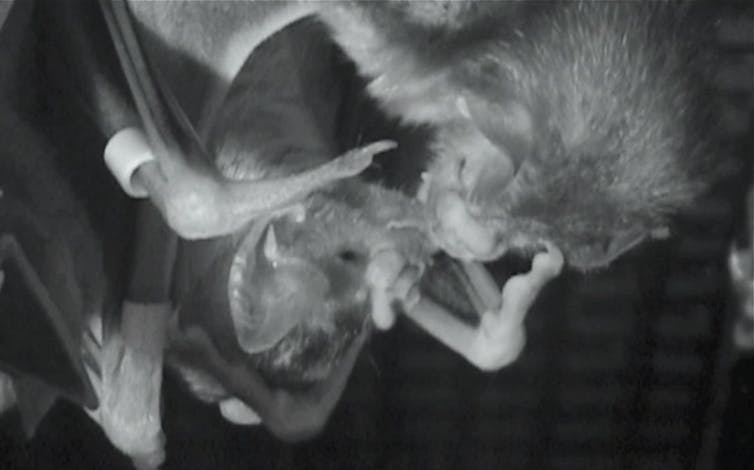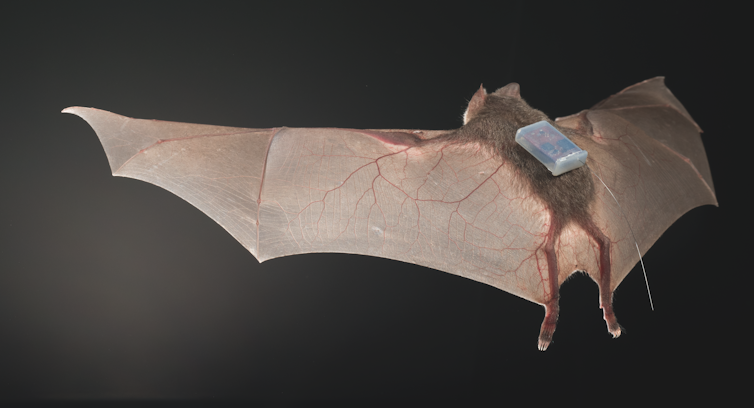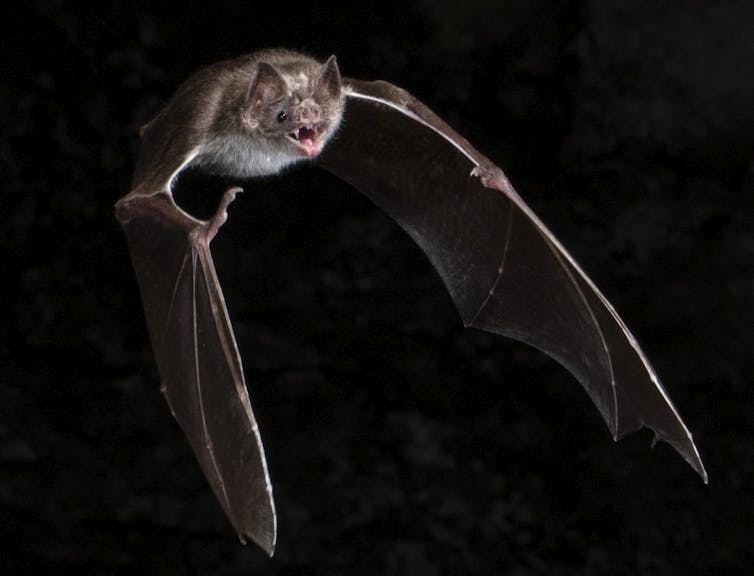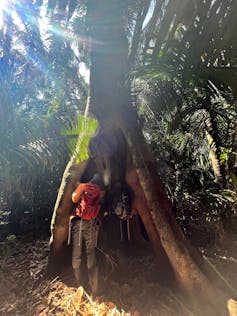Americans own guns to protect themselves from psychological as well as physical threats
Kamala Harris, Donald Trump, Tim Walz and JD Vance all have something in common. All four of them, along with an estimated 42% of American adults, have lived in a home with at least one gun.
Gun ownership in the United States is widespread and cuts across all sorts of cultural divides – including race, class and political ideology. Like all mass experiences in American life, owning a gun can mean very different things to different people.
One thing that American gun owners tend to agree on, no matter their differences, is that guns are for personal protection. In a 2023 Pew survey, 72% of gun owners reported that they owned a firearm at least in part for protection, and 81% of gun owners reported that owning a gun helped them to feel safer. This perspective contrasts to that of gun owners in other developed economies, who generally report that guns are more dangerous than safe and that they own a gun for some other reason.
I’m a psychologist who studies contemporary society. In the lab, my colleagues and I have been investigating this feeling of safety that American gun owners report. We’re trying to get a more complete sense of just what people are using their firearms to protect against. Our research suggests it goes much deeper than physical threats.
Social scientists are exploring the motivations and effects of owning a gun. Cécile Clocheret/AFP via Getty Images
Protection goes beyond the physical
By combining social-scientific research on firearms ownership with a raft of interviews we’ve conducted, we’ve developed a theory that gun owners aren’t just protecting against the specific threat of physical violence. Owners are also using a gun to protect their psychological selves. Owning a gun helps them feel more in control of the world around them and more able to live meaningful, purposeful lives that connect to the people and communities they care for.
This sort of protection may be especially appealing to those who think that the normal institutions of society – such as the police or the government – are either unable or unwilling to keep them safe. They feel they need to take protection into their own hands.
This use of a deadly weapon to provide comfort and solace may come at a cost, however, as firearms often bring a heightened sense of vigilance with them. Firearm instructors frequently teach owners to be especially aware of their environment and all the potential dangers and threats within. When gun owners look for danger, they often are more likely to find it.
Gun owners may end up perceiving the world as a more dangerous place, institutions as more uncaring or incompetent, and their own private actions as all the more important for securing their lives and their livelihoods.
How gun owners feel during daily life
What does this cycle of protection and threat look like in everyday life? My colleagues and I recently ran a study to investigate. We’re still undergoing peer review, so our work is not final yet.
We recruited a group of over 150 firearms owners who told us that they regularly carry their guns, along with over 100 demographically matched Americans who have never owned a gun. Over two weeks, our research team texted the participants at two random times each day, asking them to fill out a survey telling us what they were doing and how they were feeling.
To get a sense of how guns change the psychological landscape of their owners, we divided our gun-carrying group into two. When we texted one half of the group, before we asked any other questions, we simply asked whether they had their gun accessible and why they’d made that decision. For the other half of our gun-owning participants, and for our non-gun-owning control group, firearms and firearm carrying never came up.
When subtly reminded of guns in general – regardless of whether their gun was accessible – our participants reported feeling more safe and in control and that their lives were more meaningful. Thanks to our random-assignment procedure, we can be pretty confident that it was thinking about guns, as opposed to any differences in the underlying groups themselves, that caused this particular increase in psychological well-being.
About half of the times that we texted, the gun owners told us that they had a gun accessible at that moment. When a gun was handy, our participants told us that they were feeling more vigilant and anxious, and that their immediate situation was more chaotic. This result didn’t seem to be driven by owners choosing to have guns available when they were putting themselves into objectively more dangerous situations: We found the same pattern when we looked just at moments when our participants were sitting at home, watching television.
Raising fear and promising rescue
Contemporary American gun ownership may have conflicting messages embedded within it. First, a gun is a thing you can use to bolster your fundamental psychological needs to feel safe, to feel in control and to feel like you matter and belong. Second, having a gun focuses your attention on the dangers of the world.
By both fueling a sense of danger and holding out the promise of rescuing you from the fear, messaging around guns may end up locking some owners into a sort of doom loop.
A sense of responsibility goes along with gun ownership for the vast majority of Americans who own a firearm. Matt McClain/The Washington Post via Getty Images
My collaborators and I are currently exploring whether stressing other parts of gun ownership may help owners to move beyond this negative spiral. For instance, while owners often talk about “danger,” they also talk frequently about “responsibility.”
Being a responsible gun owner is central to many owners’ identities. In one study, 97% of owners reported that they were “more responsible than the average gun owner,” and 23% rated themselves as being in the top 1% of responsibility overall. This, of course, is statistically impossible.
To more fully understand the many ways responsible firearm ownership can look, we are in the process of interviewing gun owners from all around the state of Wisconsin, a notably diverse state when it comes to gun ownership. We’re tapping into as many of the ways of owning a gun as we can, talking with protective owners, hunters, sport shooters, collectors, folks in urban areas, folks in rural areas, men, women, young people, old people, liberals, conservatives, and, of course, trying to capture the complex ways that race shapes ownership.
Who do gun owners feel they are responsible for? What kinds of actions do they think responsible owners take?
We hope to learn more about the many different ways that people conceptualize what a gun can do for them. American gun cultures are complex and distinct things. By exploring the worldviews that support firearm ownership, we can better understand what it means to live in the U.S. today.![]()
Nick Buttrick, Assistant Professor of Psychology, University of Wisconsin-Madison
This article is republished from The Conversation under a Creative Commons license. Read the original article.





